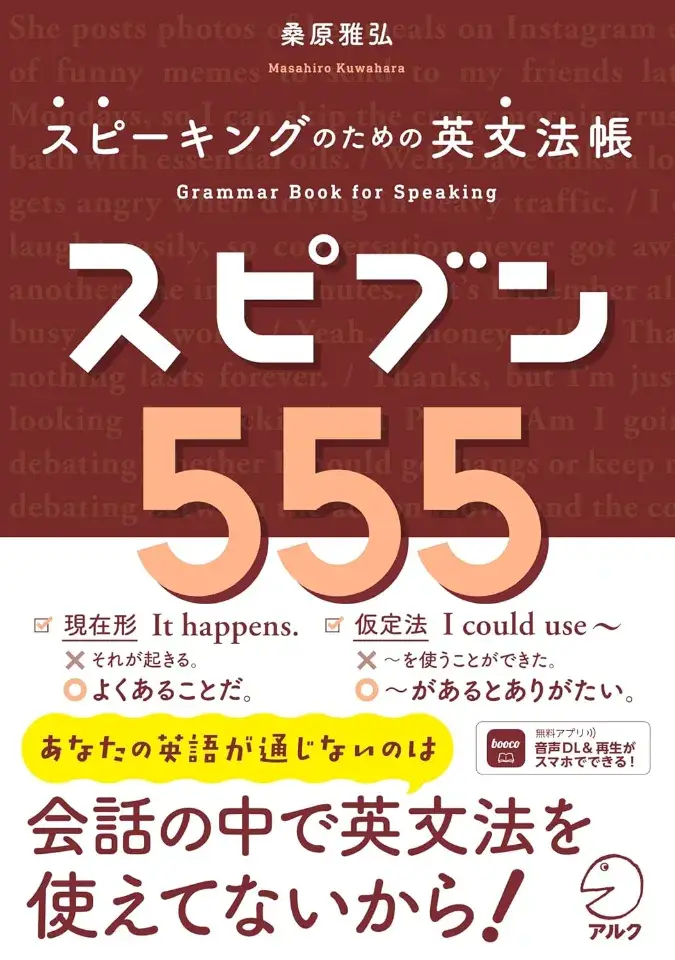
ビジネスやプライベートの場面における、ちょうどいい「距離感」の英語を学んでいきましょう。今回は、経営コンサルタントのロッシェル・カップさん、慶應義塾大学文学部教授のアダム・コミサロフさん、ITエンジニアでマンガ家の千代田まどか(ちょまど)さんの3人による、「相手や場面に合わせた『本当に丁寧な』英語」に関するオンライン討論会の様子をお届けします。
英語は本当に「直接的な」言語?
Adam Komisarof : (2) Indeed . I think that can be accomplished by (3)paying attention to how things are (4)phrased. For example , when making a request , you could ask it in a nice way by saying, “Please do ‘naninani,’” or, “(5)Kindly do ‘naninani,’” “ Would you mind doing ‘naninani?” But one very important thing to remember is, when you’re trying to ask someone in a kind way, is tone of voice is also really important, and (6) facial expression . So , if you have a small smile on your face and say, “ Would you mind doing this?” people will know that you’re really making a polite request .
Kopp : On the other hand , if you need to (7) point out a mistake that somebody’s made, rather than saying, “Why did you do that?” and getting upset, you can say, “I’m disappointed .” It gets the message across that you are not happy but in a calmer way.
Chiyoda Madoka : That’s much better than behaving like a so -called “devil manager” who (8)yells at people. That kind of behavior won’t be accepted in other cultures.
カップ :その一方で、誰かがミスをしてしまってそれを 指摘 しなければならない場合、「どうしてこんなことをしたんだ」と言って怒るよりも、「私はがっかりしています」と言えばよいのです。あなたが満足していないことを、より穏やかに伝えられます。
千代田まどか :いわゆる「鬼上司」のように人に怒鳴り散らすより、その方がずっといいですね。そんな振る舞いは、ほかの文化では受け入れられないでしょう。
(1)overly 過度に (2) indeed 確かに、いかにも (3) pay attention to ~ ~ に注意を払う (4)phrase ~を言い表す、~を表現する (5)kindly どうか(~してください) (6) facial expression 顔の表情 (7) point out ~ ~を 指摘 する (8)yell at ~ ~を怒鳴りつける

左画面:ロッシェル・カップさん、右画面上:千代田まどかさん、右画面下:アダム・コミサロフさん
丁寧な表現の鍵は「使う言葉の種類と長さ」
Komisarof : I think that it’s often said that in the U.S., we have no keigo, but I would disagree with that. One example is just the types of words that you use , the length of the words you use . For example , if I were in a formal situation and I wanted to be very polite, I’m meeting someone for the first time, I might say something like, “(2)I’m delighted to meet you,” or, “It’s such a pleasure to meet you,” if I were meeting someone in a very formal situation . But if I were meeting somebody who’s my age and we’re at a party or something like that, I might say, “Good to meet you.” So we tend to kind of use shorter expressions when we’re being casual and also the word choice itself. When we’re trying to be a little more polite, we might use longer words, more complex words, more (3)abstract words sometimes.
コミサロフ :アメリカには敬語がないとよく言われると思うのですが、私はこれには反対です。一つ例を挙げると、使う言葉の種類と長さがあります。例えば、私が改まった場にいて、非常に礼儀正しく振る舞いたいというときは、初めて会った人に「I’m delighted to meet you.(お会いできてうれしいです)」とか「It’s such a pleasure to meet you.(お目にかかれて光栄です)」と言うでしょう。非常に改まった場で人に会うとしたらです。ですが、パーティーなどで同年代の人と会うといった状況なら、「Good to meet you.(会えてうれしいです)」のように言うでしょう。このように、くだけた場面では私たちはより短い表現を使うことが多いですし、言葉の選択そのものについてもそうです。少し丁寧にしようと思ったら、私たちはより長い言葉や、より複雑な言葉、時にはより抽象的な言葉を使ったりします。
(1)politeness 礼儀正しさ、丁寧さ (2)be delighted to do ~して喜ぶ、~してうれしい (3)abstract 抽象的な、難解な

2019年冬、MicrosoftのITエンジニア向けイベント「Ignite The Tour Tokyo」登壇のために来日した、同じCloud Advocate (クラウド・アドボケイト)の 同僚 たちとランチを楽しむ千代田さん(右列の手前から2番目)。
世間話におすすめのトピックとは?
Kopp : So , if someone has already talked to you about their family, then it’s OK to ask about the family later. But if they’ve never talked about their family, and you don’t even know if they’re married (2)a lot, or not, or if you don’t know if they have children, it’s probably best that you don’t (3) bring that up. So , it’s best to not bring up a topic first yourself. It’s better to wait to see what topics they have brought up and to (4) stick with topics that you, they already have talked about before.
(5)Let’s say, Madoka went and had coffee with that (6) executive . You need to (7) come up with some topic, right ? And so , “Have you seen any good movies lately?” Or, “Have you read any good books lately?” Those would be really safe topics.
Komisarof : I think also , you know, same kind of thing about television. “Can you recommend any good television shows for me to watch? I really like comedy.” Television shows are also obviously very popular.
カップ :もしその人がすでに自分の家族の話をあなたにしていれば、後で家族について尋ねても大丈夫です。ですがその人が一度も自分の家族の話をしたことがない場合、あなたはその人が結婚しているかまたは結婚していないかということも知らなかったり、子どもがいる かどうか も知らなかったりするのであれば、家族の話題を出すのはやめておくに限りますね。つまりベストなのは、最初に自分からは話題を出さないことです。相手が何の話題を話すかという出方をうかがい、その人が前に話した話題を続けるのがいいでしょう。
例えば、まどかさんは会社のその(前述の)役員とコーヒーを飲みに行ったとしましょう。何か話題を提供する必要がありますよね。そうしたら「最近面白い映画を見ましたか?」とか「最近何か面白い本を読みましたか?」のようなものなら、とても安全な話題と言えます。
コミサロフ :それは、テレビについても同じように思います。「何か私におすすめのテレビ番組はありますか?私はコメディーが大好きなんです」とか。もちろん、テレビ番組はとても人気がありますしね。
(1)small talk おしゃべり、世間話 (2)a lot ★ここでは言い間違いなので不要。 (3) bring ~ up ~(話題など)を持ち出す、~を提起する (4) stick with ~ ~を続ける (5)let’s say ~ 例えば~したとすれば (6) executive 幹部、重役 (7) come up with ~ ~(話題など)を提供する
討論会のフルバージョンは『ENGLISH JOURNAL』2020年7月号で!

Rochelle Kopp(ロッシェル・カップ)
1964年、アメリカ、ニューヨーク州生まれ。シカゴ大学経営大学院修了(MBA)。北九州市立大学教授兼ジャパン・インターカルチュラル・コンサルティング社社長。専門は異文化コミュニケーション、グローバル人材育成、人事管理、リーダーシップと組織活性化。著書に『 反省しないアメリカ人をあつかう方法34 (アルク はたらく×英語シリーズ) 』(アルク)、『 [音声DL付]英語の品格 実践編 』(アルク)など多数。
※本記事は『ENGLISH JOURNAL』2020年7月号に掲載された記事を再編集したものです。
boocoで読める!アルクの新刊、続々登場
語学アプリ「booco」なら、アルクのベストセラー書籍200タイトル以上が、学習し放題!
「キクタン」などアルクの人気書籍800冊以上が音声対応。「読む」に対応した書籍では、本文と音声をスマホで手軽に利用できるほか、一部の書籍では、学習定着をサポートするクイズ機能で日々の復習や力試しも可能です。さらに、Plusプランに加入すれば200冊以上の書籍が学習し放題に!
boocoの「読む」機能では、次のような使い方ができます。
① 学習したいページを見ながら音声を再生できる
② 文字サイズや画面の明るさを調整できる
③ 書籍内検索ができる
※ これらの機能には一部の書籍が対応しています。

▼「booco」の無料ダウンロードはこちらから






